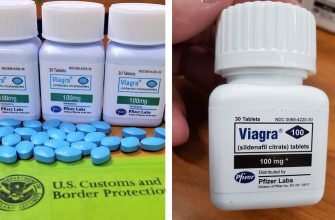Women experiencing moderate to severe hypoactive sexual desire disorder (HSDD), characterized by a persistent lack of sexual interest and arousal, are the primary candidates for flibanserin (Addyi), the FDA-approved medication often referred to as “female Viagra”. This medication addresses the underlying hormonal and neurotransmitter imbalances contributing to low libido.
However, it’s crucial to remember that Addyi isn’t suitable for all women. Premenopausal women with HSDD who haven’t found relief through other treatments may be considered for this medication. Its use is contraindicated in women with liver disease, severe hypotension, or those concurrently taking certain medications, including alcohol and some antidepressants. Therefore, a thorough medical evaluation by a physician is absolutely necessary before starting treatment.
Before considering Addyi, doctors generally explore other options like lifestyle changes (improved diet, exercise, stress reduction), relationship counseling, and alternative treatments. Addyi should be viewed as a last resort or a complementary treatment when other approaches haven’t yielded sufficient results. Open communication with your doctor about your sexual health concerns is paramount to determining the best course of action for your specific circumstances.
Remember: This information is for educational purposes only and does not constitute medical advice. Always consult a healthcare professional for personalized guidance regarding your sexual health and potential treatment options.
Who Can Use Female Viagra?
Female Viagra, or flibanserin, is prescribed for premenopausal women experiencing hypoactive sexual desire disorder (HSDD). This means it’s for women who experience significantly low sexual desire that causes distress.
Here’s what you need to know:
- Age: Flibanserin is approved for premenopausal women only.
- Diagnosis: A healthcare professional must diagnose HSDD before prescribing flibanserin. Self-diagnosis isn’t sufficient.
- Medical History: Women with certain conditions, such as severe liver disease or a history of fainting, may not be suitable candidates. Your doctor will assess your overall health.
- Medications: Interactions with other medications exist. Be completely transparent with your doctor about all medications, supplements, and herbal remedies you use.
- Alcohol: Avoid alcohol consumption while taking flibanserin, as it can intensify side effects.
It’s crucial to consult a healthcare provider for a proper evaluation. They will determine if flibanserin is right for you based on your individual circumstances and medical history. They can discuss potential risks and benefits, helping you make an informed decision.
Remember, this information is for guidance only and doesn’t replace professional medical advice.
Eligibility Criteria for Flibanserin Prescription
Flibanserin is only prescribed for premenopausal women with acquired, generalized hypoactive sexual desire disorder (HSDD). This means the low desire must be a recent development, not lifelong. The condition must also impact multiple aspects of their sexual experience, not just one specific area.
A thorough medical history is needed, including a review of current medications. Certain drugs may interact negatively with flibanserin. Women should openly discuss all prescription and over-the-counter medications, herbal supplements, and recreational drug use.
Your doctor will conduct a physical examination and may order blood tests to rule out other underlying medical conditions contributing to low libido. These tests typically assess hormone levels and general health indicators.
Prior attempts at addressing the HSDD using other therapies are usually reviewed. If other treatments, like counseling or lifestyle changes, haven’t provided sufficient improvement, flibanserin may be considered.
It’s critical to accurately assess the severity and duration of the low sexual desire. Detailed questionnaires evaluating sexual function and satisfaction are commonly used to objectively gauge the impact of HSDD on a woman’s life.
Open communication with your doctor is paramount. Honest discussions regarding symptoms, medical history, and lifestyle factors will allow your doctor to assess suitability for flibanserin prescription and ensure safe use.
Understanding Contraindications and Side Effects
Before considering flibanserin or any other medication for female sexual dysfunction, consult your doctor. Some women should not use these medications. Heart conditions, such as uncontrolled high blood pressure or a history of heart attack or stroke, are major contraindications. Similarly, liver problems can significantly impact how your body processes the medication.
Flibanserin specifically interacts with certain medications. Alcohol use must be limited. Taking flibanserin with certain antidepressants or antifungal medications can be dangerous. Your doctor will help you assess potential drug interactions.
Side effects vary from person to person, but common ones include dizziness, nausea, and sleepiness. Some women experience low blood pressure, which can lead to fainting. Less frequent, but still possible, side effects include fatigue and dry mouth. These effects usually subside as the body adjusts, but stopping the medication immediately is advisable if serious problems occur.
Open communication with your doctor is key. They can help weigh the potential benefits against the risks and guide you toward the safest and most suitable treatment option. Reporting any unexpected side effects promptly is crucial for your safety and well-being.
Alternative Treatments and Lifestyle Changes
Consider hormone replacement therapy (HRT) if hormonal imbalances contribute to your sexual dysfunction. HRT can help restore hormone levels, potentially improving libido and sexual function. Discuss this option thoroughly with your doctor to assess its suitability and potential risks.
Addressing Underlying Medical Conditions
Manage underlying health problems like diabetes, heart disease, or anxiety. These conditions frequently impact sexual health. Consistent management, including medication adherence and lifestyle adjustments (explained below), can significantly improve sexual function. Consult your physician to create a personalized management plan.
Explore the benefits of pelvic floor physical therapy. This therapy strengthens pelvic floor muscles, often improving vaginal sensitivity and reducing pain during intercourse. A physical therapist can guide you through exercises and techniques tailored to your needs.
Lifestyle modifications play a crucial role. Regular exercise improves circulation and overall well-being, positively influencing sexual health. Aim for at least 30 minutes of moderate-intensity exercise most days of the week. Additionally, a balanced diet rich in fruits, vegetables, and whole grains contributes to better cardiovascular health and overall energy levels, which can enhance sexual function.
Stress reduction techniques, such as mindfulness meditation or yoga, can improve overall well-being and decrease stress-related sexual dysfunction. Even 10-15 minutes daily can make a noticeable difference. Prioritize getting adequate sleep (7-9 hours per night) to enhance both physical and mental health, impacting your libido and energy levels for intimacy.
Open communication with your partner is key to a fulfilling sexual relationship. Discussing concerns, desires, and any challenges openly can lead to improved intimacy and satisfaction.






